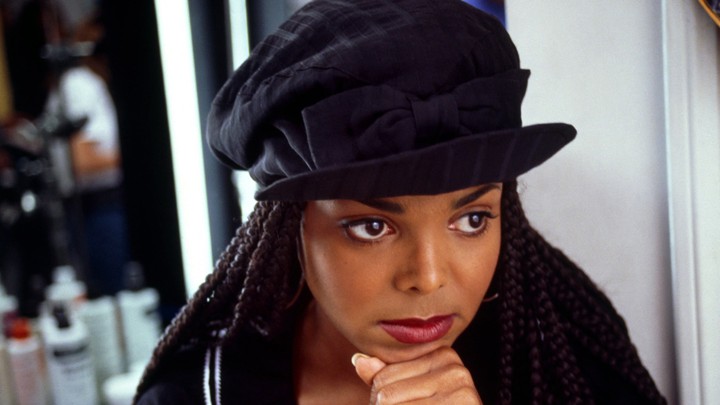In the aftermath of filmmaker John Singleton's death at the age of 51 earlier this week, tributes to the man and his work poured in on social media. Friends, family, colleagues, critics, and fans, all paying respect to the writer-director-producer whose films—from Boyz n The Hood (1991) to Poetic Justice (1993) to Higher Learning (1995) and beyond—changed their lives. One such tribute came from another Black writer-director-producer, Jordan Peele, who tweeted simply, but powerfully, "RIP John Singleton. So sad to hear. John was a brave artist and a true inspiration. His vision changed everything."
That's the legacy Singleton leaves behind—a cinematic vision that helped bring real, honest-to-goodness representation to the screen for Black audiences, at a time when this was all too rare. In fact, he and Spike Lee—whose Do the Right Thing had lit the cultural Zeitgeist on fire just two years before Boyz—ushered in a truly incredible era for Black films made by and for Black men and women. The success of Boyz—not only was it critically acclaimed but also a gigantic financial hit—broke down walls and allowed so many other talented, previously marginalized voices to come charging through alongside Singleton. Besides Singleton's and Lee's work, there was also Juice (Ernest Dickerson), Menace II Society (The Hughes Brothers), Friday (F. Gary Gray), and so, so many more.
Watching Boyz, Poetic Justice, and Higher Learning in just a handful of years as a teenager were seismic events in my young life. Singleton showed me worlds I had never experienced, as a white, suburban kid from the opposite side of the United States from South Central, Los Angeles. That's the magic of Singleton's best work: he had an uncanny ability to present his characters' lives honestly, and most importantly, with great respect. He helped audiences—no matter where we came from or what color we were—understand that his characters were beautiful, flawed, noble human beings who deserved our respect. That's because this is how Singleton felt about his community, growing up in South Central. That respect translates into the work and is one of the most potent takeaways from the whole of his filmography.
While I love many of his films, Poetic Justice has always been the one that most speaks directly to my heart. Casting lifelong crush Janet Jackson in the lead role certainly helps explain why, but it's more than that. It's because Singleton so thoughtfully explores subjects that, until then, had rarely if ever been presented onscreen, including how Black women and men face and process trauma, loss, and grief, while also celebrating the art of the written word as a path towards healing. "Humanity" is the word I come back to often when thinking about Singleton's work, and with Poetic Justice he suffused the film with an achingly beautiful humanity that deeply moved and affected me, and still does today. It's a film I could write volumes on; maybe one day I will, once the painful immediacy of losing this great filmmaker subsides a bit.
After finishing this post, please seek out some of John Singleton's films. Watch them. Then watch them again. Marvel at the cinematic treasures he left us with, and honor his life by engaging as thoughtfully with his artistry as he did in creating it.
I'd rather mine not be the final voice in this memorial, so I'm including excerpts from the wealth of thoughtfully written tributes currently popping up all over the internet.
For Vulture, Bilgi Ebiri notes, "Whether he was making a historical epic, or a social drama, or a disposable chase flick, he wanted to make sure that the characters onscreen came alive for us, in all their messiness and rage and beauty."
Over at The New Yorker, Doreen St. Félix calls Singleton a "guardian of black cinema" who "warned a younger generation of filmmakers against the 'slavery Zeitgeist' of contemporary Hollywood, a system that homogenizes the work of black creators into soulless content."
Touré, writing for The New York Times, says of a pivotal scene in Boyz, "In the film’s critical moment, the crew is driving to shoot and kill the Crips who just killed their beloved friend when Tre says he wants to get out of the car. They’re on the way to the big revenge killing and he politely but firmly declines to participate, removing himself from the endless cycle of violence. It’s a moment of victory but the audience doesn’t cheer. It exhales with relief."
In his remembrance for The Ringer, Julian Kimble perfectly sums up what made Singleton such an important filmmaker: "Throughout his career, Singleton excelled as a storyteller because of his connection to those stories. His work communicated the fact, which is often still misunderstood, that black people are not a monolith. His characters felt real because viewers knew them as well as he did. They were flawed because he understood that people are inherently flawed."





I watched Boyz n The Hood on the BBC over here last night. Wow, it still packs a punch after all these years.
ReplyDeleteIt's such an excellent film. Glad to hear the BBC must've been showing it in tribute to Singleton.
Delete